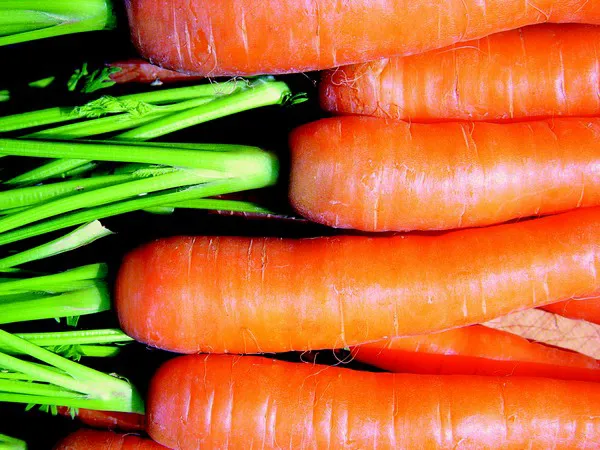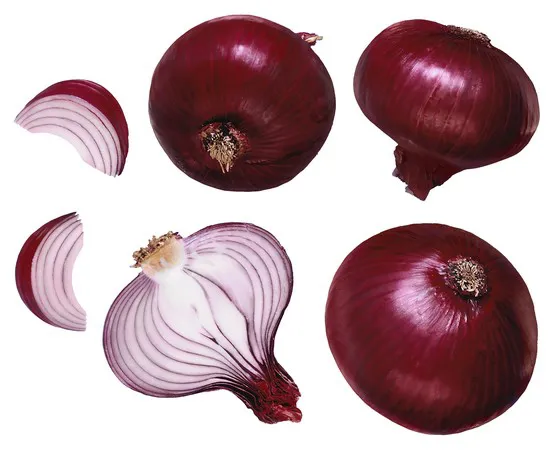Rob Grabert used to be involved with Dutch international volleyball. That means he is used to solving problems transparently. "In sports, you have to work together very transparently and solve problems together," he begins. As the owner of BioOrganic, Rob is well aware of the problems in the organic chain but needs more transparency when it comes to solving these. BioOrganic has offered a complete range of organic fruits and vegetables since 1999. Carrots from different production areas in Europe for both the fresh market and industry occupy an especially prominent place in that range.
His experience with organic products in different European countries makes Rob consider himself somewhat of a market thermometer. "Unusually now, the whole organic chain is disrupted. Some links, which affect the switch to sustainable fruit and vegetable production, aren't participating. They evade discussions and don't claim their responsibility," he says. Here, Rob is referring primarily to large parties like retail and industrial buyers, whom he believes keep increasing their profits from organic products.
 Carrots occupy a prominent place in BioOrganic's assortment
Carrots occupy a prominent place in BioOrganic's assortment
Earning model
"Huge profits are being made," he reckons, noting that the wholesale and consumer price gap is widening. "There's an increasing discrepancy, and I cannot help but suspect there's more and more speculation with organic products. Supermarkets' fruit and vegetable departments are their money makers, and most of that's made on the backs of organic growers, who've long assumed their responsibility in the chain."
The current economic problems are not helping either. Grabert sees these as creating even more dependency among organic growers. He notes that in the Netherlands, there is too much organic fruit and vegetable production relative to demand. "Germany is that country's biggest market, but the Germans are growing more and more local products. So Dutch organic growers' export window is shrinking. That's increasing market pressure; there's too much organic product. The organic chain will be adversely affected if no volume and price agreements are reached."

BioOrganic wonders why, if there are enough organic onions available, it does not opt for an exclusively organic shelf.
Pressure on prices
Rob says that in, especially, Germany, discounters are increasingly selling organic products. "There's huge competition. Chain suppliers are being 'slaughtered' to meet discounters' demand," he explains, adding that, oddly enough, the lower margins required by discounters leads to better grower prices. "The discounters - though they don't make firm agreements either - are better payers at the moment. That strengthens their pull, putting even more pressure on traditional supermarket prices."
Those chain disruptions are frustrating growers, says Rob. "Partly due to increasing storage costs and weather changes, organic growers are currently taking a lot of risks." He adds that they have to bear most of those risks on their own. They can only pass those increasing costs on sparsely, and they are not sure how much buyers will pay. "That makes it hard for growers to plan for the coming cultivation season. Something has to happen, or growers will stop taking those risks. Organic farmers have to bear the entire burden, and where does the profit go? To the supermarket or industrial processor."
 BioOrganic, which in addition to organic vegetables also focuses on organic fruit, sees an increase in the detachment of the grower from large parties such as retail or industrial processors
BioOrganic, which in addition to organic vegetables also focuses on organic fruit, sees an increase in the detachment of the grower from large parties such as retail or industrial processors
Chain collaboration
Rob believes action is needed and calls for increasing the pressure through things like legislation and better consumer information. But he sees other countries have better chain cooperation resulting in improved sales for organic products. "As soon as there's an abundance of, say, yellow onions, why don't [Dutch] retailers remove conventional onions from the range? They do that in Denmark and other countries. Such choices, made much more readily in other countries, can lead to steps being taken."
"Then you move towards fruit and vegetable sales percentages with which organic growers can do something. The market must adjust to offering local produce for as long as possible, then regional, then national. Then, for instance, no organic apples from New Zealand will be sold while there are still plenty of refrigerated Dutch organic apples." This can only work if all the links in the chain take responsibility, says this businessman. "The transition, as a whole, is a joint action from consumer to producer, to supermarket."
With BioOrganic - which has certifications including Demeter and Naturland - Rob chose, early on already, to only offer as many local and national products grown exclusively in Europe. "So no imports with polluting ships and all the other problems associated with importing products from outside Europe. A European market for European growers and companies, where consumers should be encouraged to do more with seasonal, organic products that are, as far as possible, local and national."
Nonetheless, he thinks the current crisis presents opportunities too. "Organic fruit and vegetables are even more widely available at discounters. That could lead to those products becoming available to a wider audience, regarding prices. They could reach consumers who weren't buying organic products before," Rob concludes.
For more information:
Bioorganic Holland B.V.
Peter Daniels
Tel: +31 (0)76-5220922
www.bioorganic.nl
Bioorganic SpA Italië
Rob Grabert
Tel: 0039-3357605380
www.bioorganic.it
[email protected]










